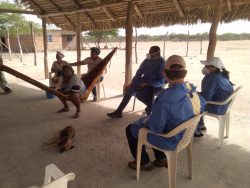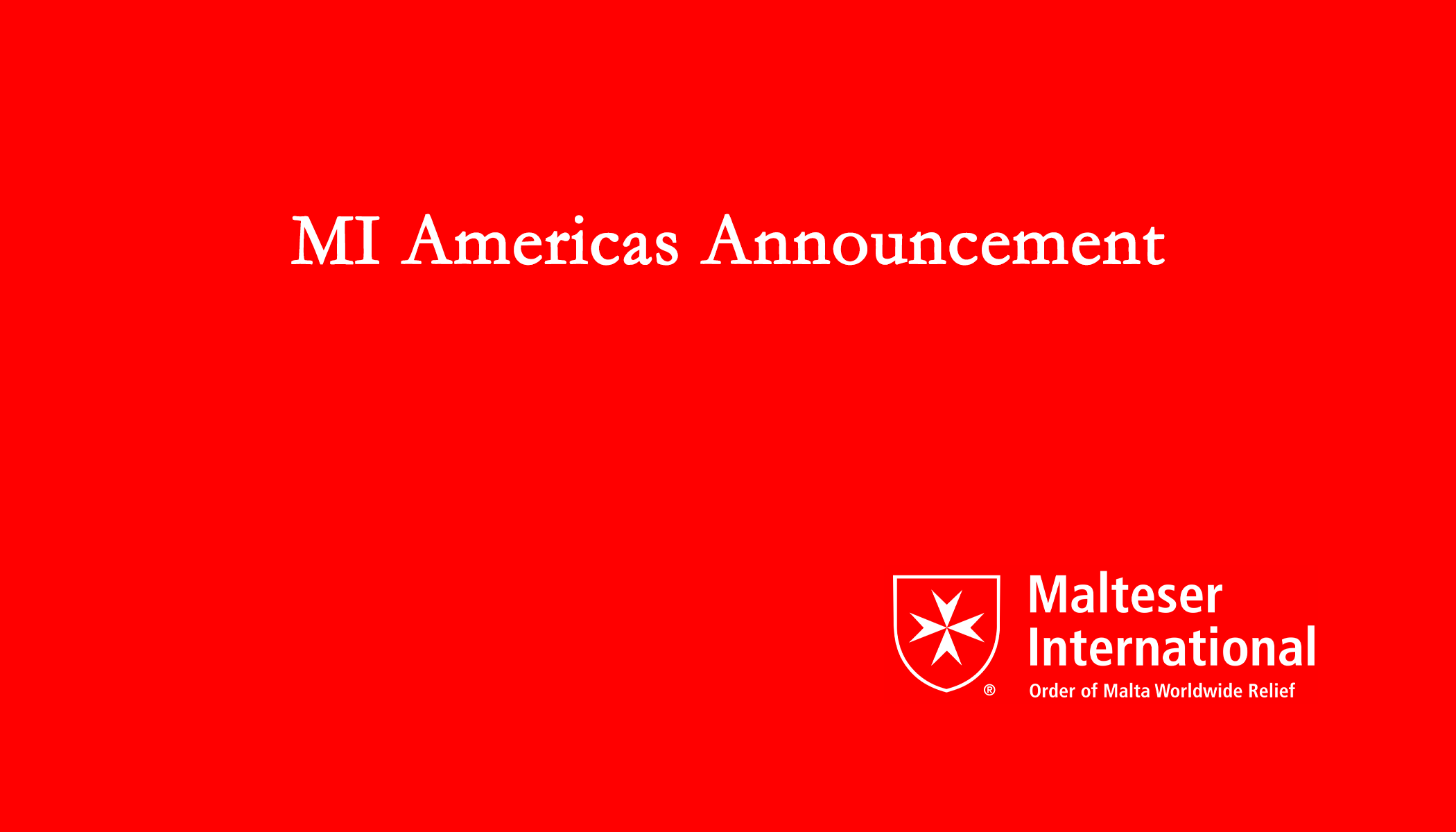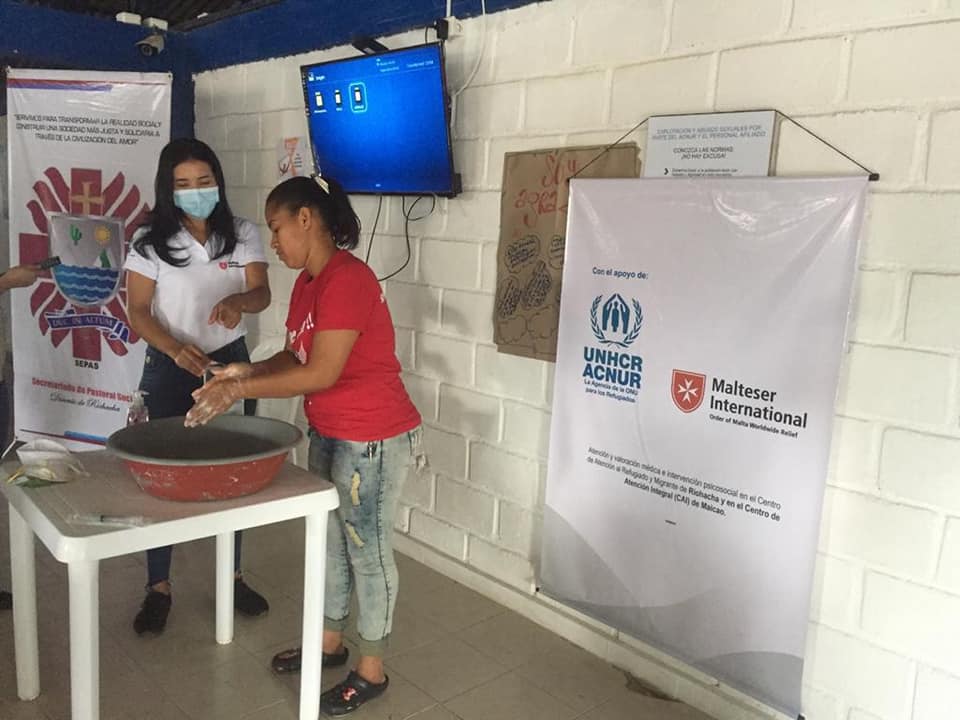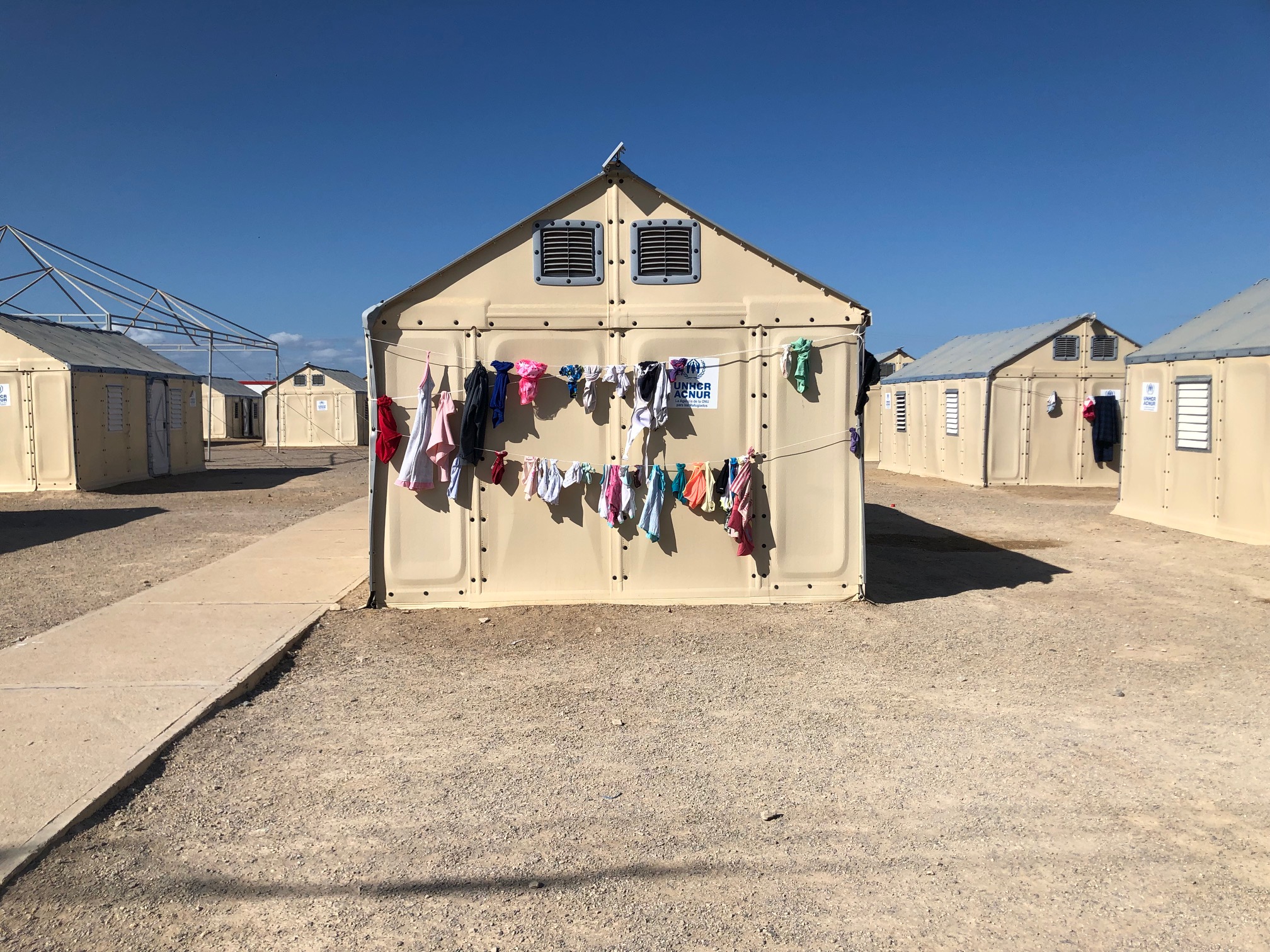South America
MI Americas Launches Two COVID-19 Projects for Refugee, Migrants & Indigenous Communities in Colombia
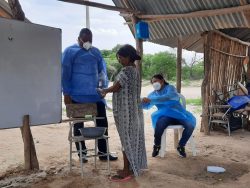
In recent weeks COVID-19 infection rates have accelerated rapidly in Colombia’s peripheral regions and indigenous communities, while unemployment and evictions are afflicting Venezuelan migrants and refugees. In response to these deteriorating conditions, Malteser International Americas launched two projects in June that are fighting the impact of the pandemic.
The South American nation has recorded approximately 155,000 confirmed cases and over 5,000 deaths due to the coronavirus. Colombia implemented one of the strictest lockdowns in the region early on with all air-travel suspended, border closures (including with Venezuela), and heavy restrictions on mobility within cities and between regions.
The measures successfully delayed the propagation of the virus, yet the last several weeks have seen a marked spike on all indicators. It has also highlighted disparities in the country, with Amazonian indigenous tribes recording the highest per capita death rates, and viral stories of Venezuelan migrants and refugees left homeless and unable to access economic support.
It is estimated that 70,000 migrants and refugees have returned to Venezuela since the beginning of the pandemic -many by foot – risking their lives along the journey and putting their home communities at risk upon their return.
These circumstances have also challenged our ability to run humanitarian programs and services. “Our focus has been to maintain our primary health consultations for services like maternity care,” says Maria-Bonita Amorim, Medical Coordinator for MI Americas, “we have also adapted the way we work, established protocols for preventing infection among our staff, expanded mental health attention, and worked with our partners to deliver emergency food distributions to vulnerable families; both to migrants and refugees as well as Colombians.”
With the support of the United States Development Agency (USAID) and the German Federal Foreign Office, we are stepping-up these efforts and introducing new ways to respond to COVID-19, while giving communities the tools to prepare and manage health crises themselves.
In partnership with USAID, we are fighting COVID-19 in vulnerable Wayuu indigenous communities in La Guajira. These activities include:
- Training 60 community healthcare workers to educate their communities on best prevention practices, monitor the epidemiological situation and alert health authorities to potential risks.
- Installation of large water supply infrastructure in collaboration with the state government to ensure water for handwashing is available.
- Distribution of hygiene kits and water storage supplies to 1,300 families.
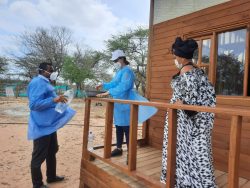
With the support of USAID we will be distributing hygiene kits and water storage supplies to 1,300 families. - Development of a COVID-19 public health campaign in Wayuunaiki language that respects and incorporates Wayuu cultural and religious practices.
- The deployment of two rapid-response teams, including a psychologist, which will work with the region’s indigenous private healthcare provider IPSI Anashiwaya.
- Establishing an Infection Prevention and Control plan at the IPSI Anashiwaya.
The German Federal Foreign Office’s COVID-19 support in Colombia is targeting Venezuelan migrant and refugee populations and their host communities in the departments of La Guajira and Magdalena. The activities include:
- Distributions of food and COVID-19 prevention kits to approximately 9,000 migrants and refugees.
- Partnering with Universidad de Magdalena to produce hand sanitizers that will distributed to medical facilities and vulnerable communities throughout the region.
- Deploying community-based awareness activities for 5,000 people.
In addition to our institutional donors, our private donors are playing a significant role in the response, Maria-Bonita explains, “Situations shift fast, needs evolve, and emergency situations are sometimes unexpected. Regular donations allow us to have the autonomy to develop medium and long-term activities that have a lasting impact in the communities.” As our long trajectory has taught us, emergencies are inevitable and the key to overcome them is empowering people with knowledge and preparation mechanisms.
